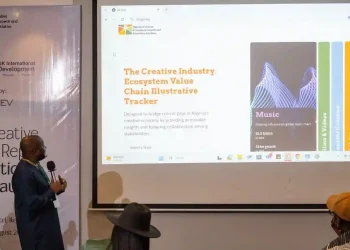Mastering SEO – Search Engine Optimization (SEO) is a crucial part to making websites more visible on search engines like Google. When done right, SEO can help a website appear at the top of search results, attracting more visitors. This guide will help you understand what SEO is, how it works, and the strategies you can use to improve your website’s ranking.
Key Takeaways:
- SEO drives higher visibility in search engine results, leading to increased web traffic.
- Understanding the crawling and indexing process is essential for effective SEO.
- Both on-page and off-page SEO techniques are critical for a successful strategy.
- Technical SEO ensures your website is fast, mobile-friendly, and easy for search engines to crawl.
- Regular monitoring and adjustments of your strategy are vital for maintaining and improving search rankings.
The Basics and Importance:
The primary goal of optimzation is to improve a website’s visibility in organic search results, which drives more traffic to the site. This increase in traffic can lead to higher conversion rates, resulting in more customers and revenue.
At its core, SEO ensures that when someone searches for your product or service category, your website appears among the top results. While this might sound straightforward, achieving it involves a complex interplay of various factors that search engines consider.
Key Components of Search Engine Optimization:
To optimize a site effectively, you need to focus on three main areas:
1. Technical Setup
Before a search engine can rank your website, it must:
- Discover: Find your pages on the web.
- Crawl: Scan them to understand their topics and identify keywords.
- Index: Add them to its database of web content, allowing the algorithm to consider your site for relevant queries.
2. Content
Content is the backbone of your website. It includes blog posts, product descriptions, videos, and other forms of information. The key to successful content is ensuring it is relevant, informative, and engaging for your audience.
3. Links
Links act as the connections between your website and others. They can be internal, linking different pages within your site, or external, linking to or from other websites. Search engines use links to understand your site’s structure and to determine the authority of your content.
Common Search Engine Optimization Misconceptions:
To understanding Search Engine Optimization, it is important to dispel some common myths:
- SEO is a one-time effort: Many believe that once their site is optimized, no further action is needed. However, SEO is an ongoing process that requires regular updates and adjustments.
- SEO is all about keywords: While keywords are essential, they are just one piece of the puzzle. Other factors like site structure, content quality, and user experience are also critical.
- SEO guarantees top rankings: No one can promise the top spot in search results. SEO can improve your chances, but many factors influencing rankings are beyond your control.
How Search Engines Work: The Basics
Crawling and Indexing:
Search engines use web crawlers (like Googlebot) to explore the internet, discovering new pages and revisiting existing ones. These crawlers follow links to find content and decide whether to index it. Pages that are duplicates, low-quality, or spammy might not be indexed.
Ranking Algorithms:
Once pages are indexed, search engines use complex algorithms to rank them. These algorithms evaluate factors like relevance, usability, and content expertise. For example, Google considers backlinks, page speed, and mobile-friendliness when ranking pages.
Search Engine Updates:
Search engines frequently update their algorithms to improve the quality of search results. These updates can significantly impact rankings, making it essential to stay informed and adapt your strategy accordingly.
On-Page SEO Techniques:
On-page SEO involves optimizing your website’s content and structure for both search engines and users. Key techniques include:
- Keyword Research: Identify the search terms your target audience uses and incorporate them throughout your site.
- Content Optimization: Ensure your content is up-to-date, well-written, and includes multimedia elements like images or videos.
- Meta Tags and Descriptions: Use concise, keyword-rich meta tags and descriptions to improve click-through rates and help search engines understand your content.
Off-Page SEO Strategies:
Off-page SEO focuses on activities outside your website that improve its authority and ranking, such as:
- Building Backlinks: Earning high-quality backlinks from reputable websites to boost your site’s credibility.
- Social Media Engagement: Increasing brand awareness and driving traffic to your site through social media platforms.
Technical SEO Essentials:
Technical SEO is the foundation of your website’s performance. Focus on:
- Site Speed and Performance: A fast-loading site enhances user experience and boosts search rankings. Optimize images, remove unused code, and use browser caching to improve speed.
- Mobile Optimization: Ensure your site is responsive and performs well on mobile devices, as more users access the web via smartphones and tablets.
- XML Sitemaps and Robots.txt: Use these tools to help search engines navigate your site effectively and decide which pages to index.

Success Metrix:
To evaluate the effectiveness of your efforts, track key performance indicators (KPIs), such as:
- Organic traffic growth
- Keyword rankings
- Conversion rates from organic traffic
- Average time on page and bounce rates
- Number of indexed pages
The Future:
SEO is constantly evolving, with trends like voice search, AI, and changing user behavior shaping its future. Stay ahead by optimizing for voice search, embracing AI and machine learning, and adapting to evolving user expectations.
Conclusion:
SEO is a powerful tool for enhancing your website’s visibility and attracting more visitors. By understanding how search engines work and implementing effective strategies, you can improve your site’s ranking and achieve lasting success. Remember, SEO is an ongoing process that requires continuous learning and adaptation. Stay committed, and your efforts will pay off in the long run.
FAQs:
- What is SEO? It stands for Search Engine Optimization, a process that helps improve your website’s visibility on search engines like Google.
- Why is SEO important? SEO is crucial for driving more traffic to your website, which can lead to increased sales and revenue.
- How do search engines work? Search engines use crawlers to discover and index web pages, then use algorithms to rank them based on relevance and quality.
- What are keywords in SEO? Keywords are words or phrases people use in search engines. Using relevant keywords helps search engines understand your content and rank it accordingly.
- What is the difference between on-page and off-page SEO? On-page SEO focuses on optimizing content and structure within your site, while off-page SEO involves activities outside your site, like earning backlinks.
- How long does it take to see results from SEO? SEO is a long-term strategy, and it can take several months to see significant improvements in rankings.

Funmilola Faleye is a Digital Marketing Specialist, with SEO and word press proficiency, also, she is an Artificial Intelligence (AI) Enthusiast, Personal Branding, and Public Relations Manager. She writes everything tech and general pop culture. She sees and talks with her pen.


















